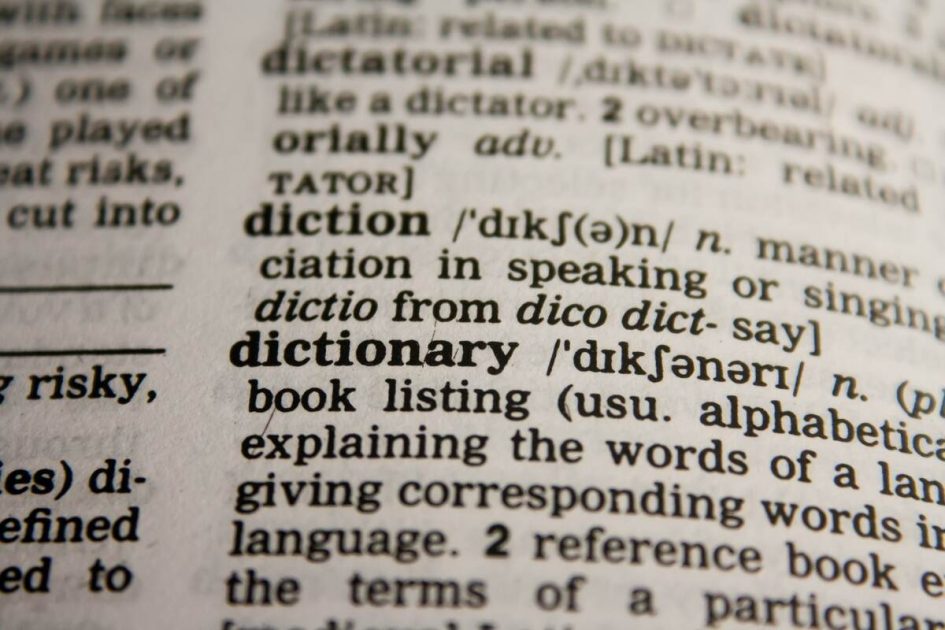There are varying opinions on the pool of English words. A global language monitoring website claims that the English language has more words than any other language globally, but authoritative sources are split on the matter. Many experts agree that English is rich in vocabulary, but they note that comparison to other languages is difficult. Some languages have more words than others, but English is unique in that it’s the lingua franca of the modern world.
The Oxford English Dictionary contains over 600,000 words, including many old-fashioned words. This list constantly expands because new words are introduced, and existing words are given new meanings. The researchers estimated that English has 171,476 words in daily use, and this number is constantly increasing. But how can we know how many words we’ve learned?
A New Milestone
The US web monitoring service Global Language Monitor announced that the millionth English word is “Web 2.0”, which is the latest term for the latest products and services. Paul Payack of Global Language Monitor helped identify this word. The English language surpassed the million-word threshold on June 10. With this amount of words in the English language, it can be hard to work with certain papers and documents, especially if you are not a native speaker, because some technical terms may be unfamiliar. If it is this way for you when you are trying to do a translation, hire an agency. Bit first check IsAccurate and read their unbiased reviews about translation companies. Their team rates companies that have expert translators in different languages and fields, so they will definitely help you out.
Despite English’s comparatively large vocabulary, it’s also very adaptable to foreign words. Since English has become the international language, it has absorbed the vocabulary of many other languages. However, unlike other languages, English does not take advantage of ‘agglutinative’ languages that contain infinite words. In other words, English has a much larger vocabulary than other languages in the Romance language family.
Many loanwords relate to food, as food is often closely related to culture. Other languages do not often have words for foods from other cultures. A popular example of this is the croissant, which is bread or pastry that leaves crumbs on your plate when eaten.
How Many Words in English Are Slang and Jargon?
Slang and jargon are commonly used in the modern language and add bulk to its vocabulary. Various dictionaries define them differently, including the Merriam-Webster dictionary. Merriam-Webster defines slang as informal words, while the Collins dictionary defines it as “words commonly used in niche-specific environments.” Jargon, on the other hand, is defined as “specific technical terms, commonly used by people in a specific profession or group.”
The number of English words is impossible to count precisely as the language continues to expand and evolve. Slang and jargon are constantly being incorporated into new words and dropping out of usage, making it impossible to develop a definitive figure.
The number of slang and jargon words in English varies by profession and location. It is estimated that as many as a quarter million words are in use in the English language. However, this figure excludes words from regional and technical dictionaries and words not yet included in a published dictionary.
Slang and jargon are used in informal settings. They are generally considered inappropriate for formal writing. Historically, slang words rarely last long in the language, but over time, they have become commonplace and are now part of our everyday vocabulary. While there is some confusion surrounding the difference between slang and jargon, it’s important to remember that the two are not identical. Slang is the everyday language everyone speaks, while jargon is the specialized language used by one or more groups of people. Jargon is often helpful to those within the group but often meaningless to those outside of the group.
How Many Words Are in the English Language?
A global language monitoring website recently estimated that the English language contains more than one million words. Other authoritative resources largely backed this estimate. It’s difficult to pinpoint an exact number of words, however, because the language is constantly growing. This means that words that were used only a few years ago could already be regarded as archaic terms. Another problem is that most of the language’s words come from different parts of the world or different sciences. That’s where English has an edge over other languages regarding word count: it’s the universal language.
The number of words in the English language is a complex question, and no single dictionary has been able to compile a definitive list. However, many experts agree that there are more words than in other languages.
There are countless slang words and jargon terms that people use every day. Using a dictionary is not enough to master a new language, especially if it’s a foreign language. In addition to this, some words come from many different languages. Using a dictionary is not enough since people keep learning and incorporating new words.
How many words you need to talk?
The minimum number of words needed for conversational fluency is somewhere between 8,000 and 9,000. For this reason, language learners should know at least the approximate number of words they need to learn to be conversationally fluent. It’s not enough to simply memorize a list of words; they should be able to learn a few words based on context. This is where good guesswork and context can help.
It’s difficult to determine exactly how many words are in the English language without knowing the definitions of the words. Some words start with an ’e’ but are used rarely in everyday conversation. Other words, like the word muumuu, mean the same thing. If the word has no ’e’, it’s difficult to construct it. It alters the meaning and message of the text.
What is an English Speaker’s Average Vocabulary?
Most of us have a limited vocabulary – perhaps even less than one-tenth of the words spoken by native speakers. The average native speaker knows between 20,000 and 40,000 words, but the word count varies widely from language to language. This statistic is important to remember because increasing your vocabulary can improve your life in many ways, including professional and social mobility.
A study in Science magazine estimates that the average twenty-year-old American has a vocabulary of approximately 42,000 words. Research conducted by UPI confirms this finding. The Economist also found that the average American adult knows around 30,000 words. While this large vocabulary may be discouraging for those looking to learn the English language, experts recommend that a beginner understand between five and ten thousand words for proficiency.
A Native Seaker’s Vocabulary
The researchers discovered that a typical native English speaker has a vocabulary of between 20,000 and 30,000 words, with a range of over one million for the English language. By the age of twenty, an educated American knows more than four thousand dictionary words and can speak at least three of them fluently.
A native English speaker knows about a thousand lemmas, or the basic words from which all other words are derived. A typical native English speaker understands about seventy percent of everyday English, and the average French student knows about 1,000 words after 400 hours of classroom instruction. So, what is an English speaker’s average vocabulary?
Although an English speaker’s average vocabulary is not particularly large, it is still worth acquiring to learn as much as possible. Unlike most other languages, your average vocabulary will not make a significant impact on your ability to understand written texts. It is therefore essential to focus on the most common words first and then study vocabulary related to your interests and needs. This is because an English language learning program should be focused on the “right words” for a learner, not just the ones that come naturally to a native speaker.
As you can see, the English language is quite wordy. But this doesn’t stop many people from learning it. You can too, with a little effort and dedication.

